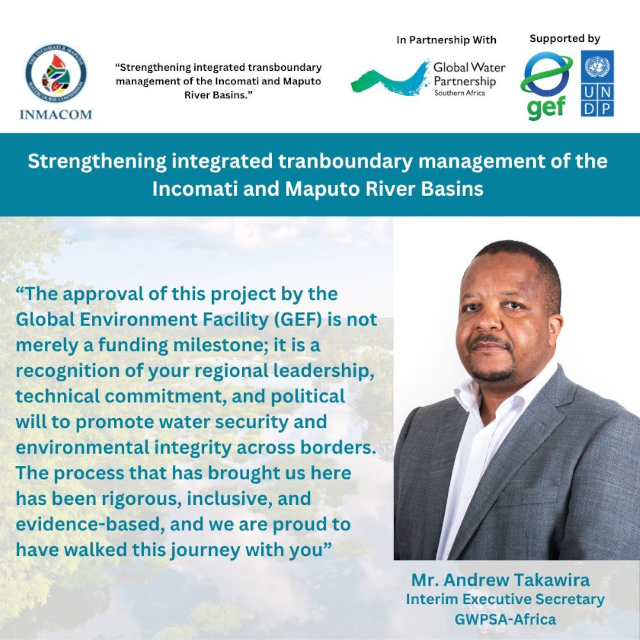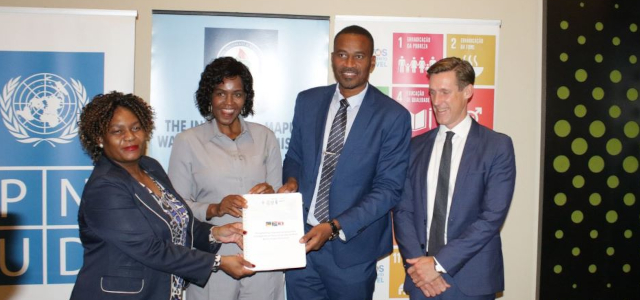The Green Environmental Facility’s (GEF) investment of over USD 7.1 million in the project, leveraging more than USD 64 million in confirmed co-financing, will enable vital interventions that address the urgent and complex challenges facing the Incomati and Maputo River Basins, including degraded ecosystems, altered flow regimes, pollution, biodiversity loss, and climate-induced extreme events such as floods and droughts. These challenges impact not only ecosystems but also the lives, livelihoods, and development ambitions of more than 3.4 million people who rely directly on the basins' resources.
The three governments endorsed the project through the signing of the project document in Maputo, Mozambique, on Wednesday, 16 July 2025.
UNDP is the implementing agency, while GWP Southern Africa is the project executing partner. Both agencies are supporting the Incomati and Maputo Watercourse Commission (INMACOM), an organisation formed by the three AU Member States to promote cooperation and ensure coordinated development, management and sustainable use of the water resource.
GWPSA has since congratulated the three governments of Eswatini, Mozambique and South Africa on signing and endorsing the “UNDP-GEF Project Strengthening Integrated Transboundary Management of the Incomati and Maputo River Basins,” kickstarting implementation.
GWPSA Interim Executive Secretary Mr. Andrew Takawira said the signing represents the culmination of years of cooperative dialogue, institutional strengthening, and policy visioning among the three countries, and it is a testament to the collective resolve to manage the shared water and environmental resources in an integrated, equitable, and sustainable manner. As the GEF Executing Entity, GWPSA is honoured to support the delivery of this ambitious and high-impact project.

“Let us also acknowledge the critical role of UNDP in accompanying us on this journey. Your leadership and partnership in developing this project, facilitating coordination, and upholding environmental and social safeguards have been instrumental in reaching this stage. We also extend our appreciation to the GEF for believing in this vision and for providing the resources to bring it to life,” added Mr. Takawira.
The signing by the 3 countries builds on a long and rich history of transboundary cooperation in the region. Since the early 1980s, the three countries have been working through the Tripartite Permanent Technical Committee, the landmark 2002 Interim IncoMaputo Agreement, and recently, the establishment of the Incomati and Maputo Watercourse Commission, INMACOM, in 2021.
The project will support both the mitigation of risks and building resilience. It will also support efforts to move from fragmented, sectoral approaches to a source-to-sea paradigm that acknowledges the intrinsic links between upland ecosystems, downstream users, coastal zones, and marine systems such as the ecologically critical Maputo Bay.
The project will be implemented through the following 5 components:
- Strengthening regional governance frameworks
- Building a robust scientific knowledge base
- Supporting strategic basin-wide and coastal zone planning
- Implementing innovative, community-driven pilots for sustainable livelihoods
- Facilitating effective knowledge generation, communication, and upscaling
The project also places gender equality and social inclusion at the heart of its design. The differentiated roles, vulnerabilities, and capacities of women, youth, and marginalised groups have been considered, and specific actions, including gender-responsive data collection, policy development, and inclusive livelihood pilots, will ensure that the benefits of this initiative are shared equitably.
